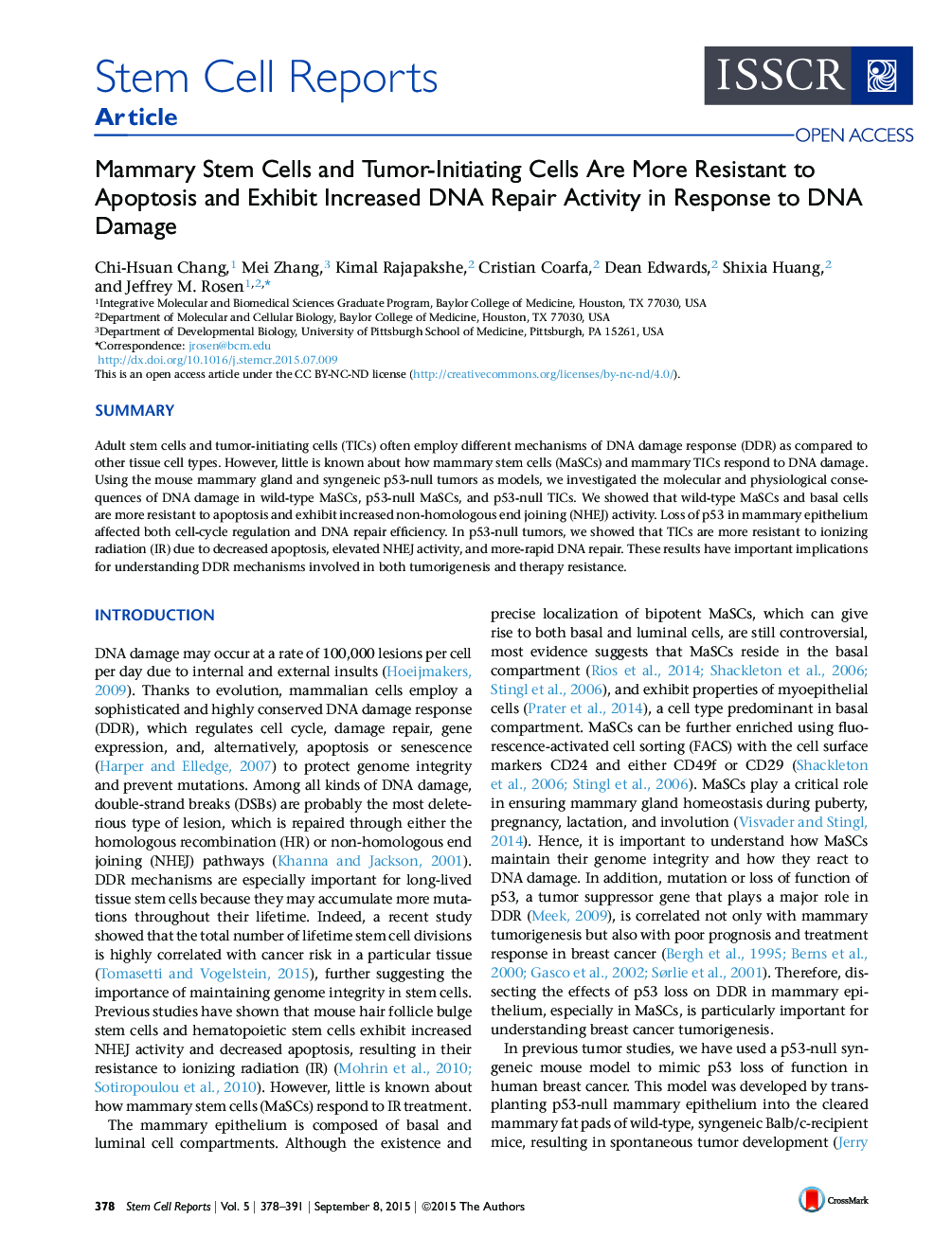| Article ID | Journal | Published Year | Pages | File Type |
|---|---|---|---|---|
| 2093406 | Stem Cell Reports | 2015 | 14 Pages |
•MaSCs are more resistant to apoptosis and exhibit increased NHEJ activity•Loss of p53 in MECs impairs cell-cycle regulation and DNA repair efficiency•TICs exhibit decreased apoptosis, increased DNA repair efficiency, and NHEJ activity•TICs are highly proliferative and exhibit improper cell-cycle regulation after IR
SummaryAdult stem cells and tumor-initiating cells (TICs) often employ different mechanisms of DNA damage response (DDR) as compared to other tissue cell types. However, little is known about how mammary stem cells (MaSCs) and mammary TICs respond to DNA damage. Using the mouse mammary gland and syngeneic p53-null tumors as models, we investigated the molecular and physiological consequences of DNA damage in wild-type MaSCs, p53-null MaSCs, and p53-null TICs. We showed that wild-type MaSCs and basal cells are more resistant to apoptosis and exhibit increased non-homologous end joining (NHEJ) activity. Loss of p53 in mammary epithelium affected both cell-cycle regulation and DNA repair efficiency. In p53-null tumors, we showed that TICs are more resistant to ionizing radiation (IR) due to decreased apoptosis, elevated NHEJ activity, and more-rapid DNA repair. These results have important implications for understanding DDR mechanisms involved in both tumorigenesis and therapy resistance.
Graphical AbstractFigure optionsDownload full-size imageDownload as PowerPoint slide
